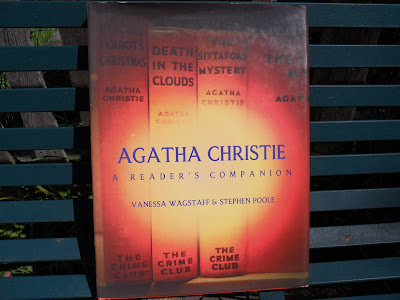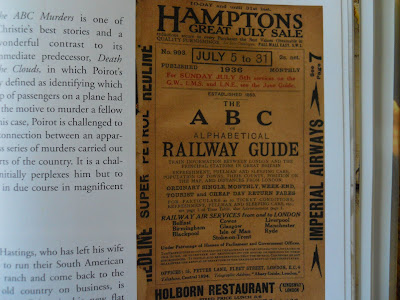
53. On What Grounds - first in the Coffeehouse series
by Cleo Coyle
mystery, 2003
Kindle book, 31
eighth book for the Foodie's Reading Challenge
finished, 8/5/11
For a while now, I've been reading the
Mystery Lovers' Kitchen blog, and recently I entered a contest to win the latest book in the
Coffeehouse series by one of the blog's writers, Cleo Coyle. I thought I'd read the first in the series and bought it for my Kindle. This is one of the best starts to a cozy mystery series I've come across. Interesting, informative about coffee, good main character who didn't get herself into bad situations, and a fine mystery. Who could ask for more? And guess what, I won the book!
Clare Cosi used to be the manager of The Village Blend coffeehouse, but left the job and the city for the suburbs, a marriage, and a daughter. The marriage has broken up, the daughter has grown up and moved to the city, and Clare has been re-hired as the manager of the Blend by its owner, 'Madame.' She has been offered the apartment upstairs so has sold her house and moved back. And there's an interesting twist. Madame Dreyfus Allegro Dubois is Clare's ex-mother-in-law. They've always been great friends so this is not a problem. The problem is that Matteo 'Matt' Allegro, the son of Madame and Clare's former husband, is going to share the apartment when he comes back from coffee buying trips for a few days each month. From the first moment when Clare finds Matt in the apartment, the reader sees that there is still a lot of emotion between them. The breakup was caused by Matt's extra-marital affairs. Though she is naturally still annoyed and saddened, she is also still a little bit in love with him still and yet, will try her best to not get pulled back in to the relationship. They mostly get along, and are both very close to their daughter, Joy. This is a modern family that is making its way without a guidebook, and mostly it is working pretty well.
The Village Blend is a coffeehouse in Greenwich Village, New York City.
Situated on a quiet corner of Hudson Street, in the first two floors of a four-story red brick townhouse, the Blend had been sending her rich, earthy aroma of freshly brewed coffee into the winding lanes of Greenwich Village for over one hundred years.
The historic streets surrounding the place had once felt the footsteps of Mark Twain, e.e. cummings, Willa Cather, Theodore Dreiser, Edward Albee, Jackson Pollack, and countless musicians, poets, painters, and politicians who'd influenced American and world culture.
Within a few blocks sat the Commerce Street home where Washington Irving wrote Sleepy Hollow; the historic church of St. Luke in the Field, whose founding vestryman, Clement Moore, composed 'Twas the Night Before Christmas; and the off-Broadway Cherry Lane Theater, which was started in the 1920s by a group that included poet Edna St. Vincent Millay and decades later employed a young usher by the name of Barbra Streisand.
Well, with a description like this early on in the book, can you understand why I became excited about this series? Great description, setting, and writing are the hallmarks of On What Grounds. The mystery is a good one as well. A young employee who is also a dancer is found by Clare at the bottom of the basement stairs. The police are quite sure it was an accident but Clare feels that it could be attempted murder. While Anabelle lies in the hospital, her life waning away, Clare races to discover what really happened.
I'll just say that I've never been so enthralled by a first book in a cozy mystery series as I am by this one. Clare is a wonderful character, a woman you'd like to have as a friend. The rest of her family are just as enchanting and the reader quickly cares about each of them. The workers and clientele have smaller roles but are still strong and memorable characters. The policeman, Lieutenant Quinn who comes to investigate is an interesting and appealing fellow, and I wonder if he will be the investigating officer in the other books.
All of these factors would be enough for this reader, but there is more. This book is full of information about coffee; different kinds, ways of brewing, historical notes. I was fascinated. I'm not a huge coffee drinker. I have one cup in the morning. I drink it with no sugar, no milk, not black but with an almost equal amount of honey. No, I don't know anyone else who drinks it this way either.
Here's one of those 'who knew' informative moments in the book.
Take the great Kona scandal of 1996. A cabal of coffee producers, one of whom Madame had known rather well, had been caught rebagging cheaper Central American blends and transshipping them through Hawaii marked as that exceptional bean, Kona - ironically mellow for something grown in volcanic lava. As far as anyone knows, at least at this writing, Madame's friend is still in federal prison.
If I were a movie critic, I'd say two thumbs way up for On What Grounds. The book is intelligent and fun, informative with a touch of romance. I've already bought the second one and I have an idea I might read right through the series.
The
website is a terrific companion to the books. It is filled with recipes, coffee tips, contests, and real coffeeshops. You could spend a lot of fun time there. And the
Mystery Lovers' Kitchen blog includes many other writers whose work I am eager to read.
The Coffeehouse series is written by a wife and husband team, Alice Alfonsi and Marc Cerasini. Alice Alfonsi also writes under the name Rosemary Grace, as well as writing The Haunted Bookshop Mysteries with her husband, as Alice Kimberly. Here's a video from last summer.
This is my eighth book for the Foodie's Reading Challenge. There are many great reviews of food related books from several genres which you may read
here.

And because it is the weekend, and because coffee is a 'food' I am offering this post as a Weekend Cooking entry. You may read this weekend's postings
here.






































